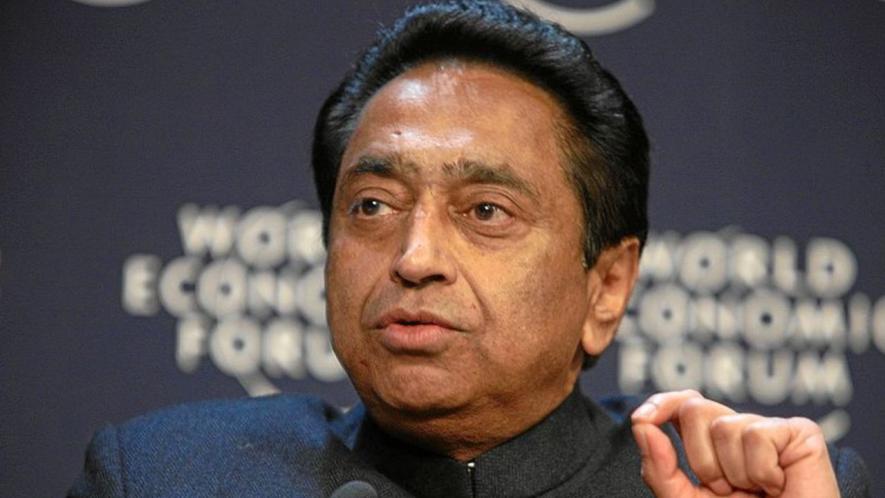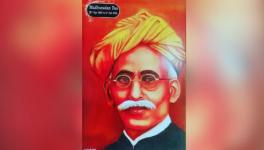What Explains Congress’s Poor Electoral Show in MP?

Image Courtesy: Flickr
Among the many surprises thrown by the 2024 Lok Sabha elections, a significant one is the political revival of the Congress party. More surprising is that in a one-to-one contest against Bharatiya Janata Party (BJP), Congress's strike rate has improved drastically compared with its dull performance in the past two general elections 92014 and 2019). Most of the seats in which BJP and Congress took on each other directly are in the Northern, Western, and Central parts of the country.
Congress got wiped out Madhya Pradesh this time while it managed to open an account in the Prime Minister and Home Minister's home state of Gujarat. It also performed well in Rajasthan, Haryana, and Uttar Pradesh, to say the least. Even in the general elections that took place after the Emergency in 1977, the party had won a seat in the state.
Madhya Pradesh and Chhattisgarh are two bipolar states where Congress’ performance declined vis-a-vis 2019. In Himachal Pradesh and Uttarakhand, BJP repeated its performance by winning all the seats. In the former, Congress was in power but could not manage to fetch a single Lok Sabha seat.
The article tries to address the question, 'Why did the Indian National Congress (INC) fail to win a single seat in MP?'
Five reasons can help us answer this puzzling question.
Poor Leadership
With a humiliating defeat in the Assembly Election in 2023, one of the first steps that INC took was to replace its leader Kamal Nath, a Brahmin, with Jitu Patwari, a young OBC (Other Backward Classes) leader. Though Patwari lost his own seat in the Assembly polls, he was trusted by the central party leadership to inject fresh energy into the state unit. Two popular Congress leaders, Kamal Nath and Digvijaya Singh, were contesting elections indirectly and directly, respectively, and both lost.
The wisdom one gets after 10 years of rule by a highly populist regime is that social and economic issues by themselves do not become electoral issues; they need to be made, and the leadership in MP seems clueless about how to proceed with this. Despite the anger of the youth against the failure of the state government to conduct state exams regularly, paper leaks (Patwari scam) and the impending issue of OBC reservation (which is affecting the results of state exams), the party leadership failed to make it an election issue, both during the Assembly and Lok Sabha elections. This is when students, under the banner of a new student organisation, NEYU, held a few protests in Indore, the coaching hub for state exams.
Dysfunctional INC state unit/organisation
My fieldwork in Madhya Pradesh before and after the Assembly election suggests that the party's state unit is on ventilator support. Many of its district presidents and office-bearers do not hesitate to talk about their dysfunctional state unit. Candidates need to manage most of the resources required for mobilising voters. With the increasing cost of contesting elections and BJP capable of spending vast amounts of money, such a disadvantage cannot be ruled out.
Most powerful state unit of BJP and RSS
It might surprise many, but there is a high possibility that BJP has the country's most functional state unit in Madhya Pradesh. Moreover, the state is also the original bastion of Hindu Right-Wing forces. Many of its top leaders, like Atal Bihari Vajpayee and Vijay Raje Scindia, belong to MP.
The former version of BJP, the Jan Sangh, in 1967 and 1971, managed to win 10 and 11 seats, respectively, out of total 40 Lok Sabha seats in the state. Since the 1996 general election, INC could manage to bridge the gap in the Lok Sabha tally in the state between itself and BJP only in 2009. Also, the Rashtriya Swayamsevak Sangh has a deep network in the state since the early days of Independence.
Ladli Behna Scheme
Given the increasing salience of women voters in Indian politics, schemes targeting them are becoming crucial tools of mobilisation. A low level of polarisation along ideological and identity in the state might have allowed the Ladli Behna scheme to become a force to ward off INC and get a gender edge. BJP not only continued with the scheme even after the Assembly elections but also increased the amount of money provided to women under the scheme.
Failure to localise elections
In this Lok Sabha election, not just dominant narratives but local dynamics, too, played a big role in attracting voters. In Rajasthan and Haryana, where INC increased its tally drastically, the politically dominant caste, Jat, not only voted for INC but also wielded the power to push the narrative of BJP being an “anti-farmer” regime. Socio-political dominant castes, such as Brahmins and Rajputs, are increasingly supporting BJP. Also, tall leaders from politically dominant castes among OBCs, such as Yadavs and Lodhi, hold key positions in the government and the party organisation.
While INC's all-India seat tally has almost managed to reach the 100 mark, it performed terribly in Central India. The intensity of this setback is greater, as it also lost the Assembly elections last year. The road to revival in Madhya Pradesh for INC seems to be difficult unless it comes up with some out-of-box thinking coupled with the ability to take tough steps to implement those ideas.
The writer (@dddharmanshu) is a PhD Scholar at Jiwaji University, Gwalior, Madhya Pradesh. The views are personal.
Get the latest reports & analysis with people's perspective on Protests, movements & deep analytical videos, discussions of the current affairs in your Telegram app. Subscribe to NewsClick's Telegram channel & get Real-Time updates on stories, as they get published on our website.
























